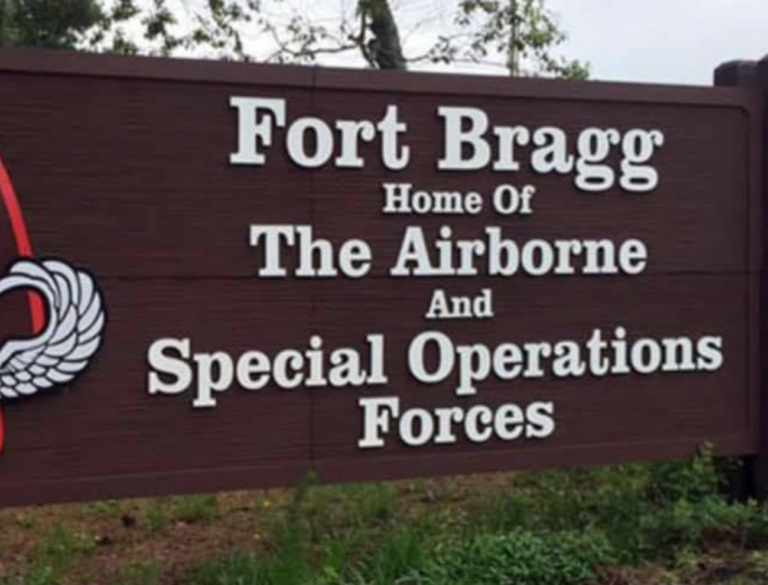Restore Fort Bragg: Honoring America’s Military Legacy
In recent years, a troubling trend has emerged in our nation: a wholesale rewriting of our shared history under the guise of progress. This trend has targeted the names of long-standing military installations, such as the historic Fort Bragg. Such efforts are not just acts of revisionism but a direct affront to the honor, sacrifice, and heritage of our armed forces.
It’s time to take a stand. We must restore the original names of our military forts and rekindle pride in the traditions that have defined our nation.
Restoring Fort Bragg and Preserving Military History
Fort Bragg, like many other military installations, carries a legacy that extends far beyond its name. Established in 1918, Fort Bragg honors General Braxton Bragg, a distinguished Confederate officer whose military career symbolizes a chapter of American history that, while complex, cannot and should not be erased. Changing the names of these forts severs our connection to the past and dismisses the valor of those who served under these banners.
Renaming these forts is a symbolic capitulation to modern sensibilities that prioritize political correctness over historical integrity. Restoring Fort Bragg and its original name is about recognizing these names as more than markers on a map—they’re monuments to the American soldiers who trained, fought, and gave their lives for this country. When we strip these names away, we diminish their stories and sacrifice.
Erasing shared history is also erasing the connection that we’ve had to our past and the legacy our fighting forces have had on this nation. Restoring Fort Bragg reinforces pride in the United States’ supreme fighting force and pushes back against the sanitization aimed at appeasing a vocal minority.
Fort Bragg: A Legacy Worth Fighting For
Fort Bragg has stood as a pillar of military excellence for over a century. It is the home of the 82nd Airborne Division and the U.S. Army Special Operations Command—both symbols of unmatched bravery and operational success. The name Fort Bragg evokes pride, respect, and an unwavering commitment to American values.
Those who advocate for renaming argue that these actions foster inclusivity and progress. However, this is a narrow view that ignores the broader cultural and historical significance of these installations. Restoring Fort Bragg ensures that generations of soldiers who wore the Fort Bragg insignia with pride are not forgotten.
Renaming Military Installations: A Broader Impact
The renaming of military installations is not an isolated issue; it reflects a broader movement to sanitize history, often disregarding the complexities and lessons it offers. This trend extends beyond Fort Bragg to other installations that have been renamed, including:
- Fort Hood, Texas, renamed to Fort Cavazos.
- Fort Benning, Georgia, renamed to Fort Moore.
- Fort Lee, Virginia, renamed to Fort Gregg-Adams.
- Fort Gordon, Georgia, renamed to Fort Eisenhower.
- Fort A.P. Hill, Virginia, renamed to Fort Walker.
- Fort Pickett, Virginia, renamed to Fort Barfoot.
- Fort Polk, Louisiana, renamed to Fort Johnson.
- Fort Rucker, Alabama, renamed to Fort Novosel.
These changes, implemented by the Department of Defense following recommendations from the Naming Commission, aim to remove Confederate affiliations. However, they also risk erasing the nuanced histories of these sites and the soldiers who served there.
The Danger of Erasing Historical Monuments
The renaming of military installations is part of a larger movement that includes the alteration or removal of statues, monuments, and landmarks. For example:
- The removal of statues of historical figures such as Robert E. Lee has sparked widespread controversy.
- The renaming of schools, streets, and parks originally dedicated to Confederate leaders further diminishes public access to our shared history.
- Changes like these can be seen as attempts to “cleanse” history rather than confront and understand it.
For more context on the importance of tradition versus modernity, see our related discussion on the BC vs BCE Debate.
Why Restoring Fort Bragg Matters
This debate isn’t just about a name; it’s about the values we choose to uphold as a nation. Will we allow ourselves to be defined by fleeting cultural shifts, or will we honor the enduring principles of duty, sacrifice, and patriotism? Restoring Fort Bragg sends a clear message: America values its history, warts and all, and will not capitulate to those who seek to rewrite it.
Take Action to Restore Fort Bragg
We call on President-Elect Trump, Senator-Elect McCormick, and all members of Congress to prioritize undoing this atrocity. Restoring the original names of our beloved military installations is a vital step in preserving the legacy of our armed forces and respecting the sacrifices made by generations of service members.
If you agree that this is a fight worth waging, here are ways you can take action:
- Contact Your Representatives: Let your voice be heard by reaching out to your elected officials. Demand that they prioritize restoring the original names of our military installations. Find your representative here.
- Support Advocacy Groups: Organizations dedicated to preserving American history need your help. Whether through donations or volunteering, your support can amplify their efforts.
- Educate Others: Spread the word about the importance of this issue. Share this article and engage your community in meaningful conversations about why restoring Fort Bragg matters.
- Sign Existing Petitions: Numerous petitions exist to restore the original names of these installations. For example, petitions on platforms like Change.org call for Fort Liberty to revert back to Fort Bragg. Your signature strengthens these initiatives.
- Petition for Change: If no local or specific petition exists, consider starting your own to call for the restoration of these names.
Join the Movement to Restore Fort Bragg
Our military is a source of national pride, and its history deserves to be preserved, not rewritten. Renaming forts like Fort Bragg undercuts the sacrifices of those who trained and fought there and dishonors the memory of their service. Restoring Fort Bragg reinforces our commitment to the storied legacy of our armed forces.
History is not always comfortable, but it is always instructive. By restoring these names, we reaffirm our commitment to learning from our past rather than erasing it. Let us unite in this effort to honor the heroes who built this nation and ensure that their sacrifices are never forgotten.
For further reading on the importance of preserving military heritage, visit Heritage Foundation or explore resources at Military.com.
Together, we can restore Fort Bragg and protect our history for future generations.





One thought on “Restore Fort Bragg: Honoring America’s Military Legacy”
We need to restore the honored names of our military bases that were re-named by dishonorable people. There is no honor is disrespecting history.